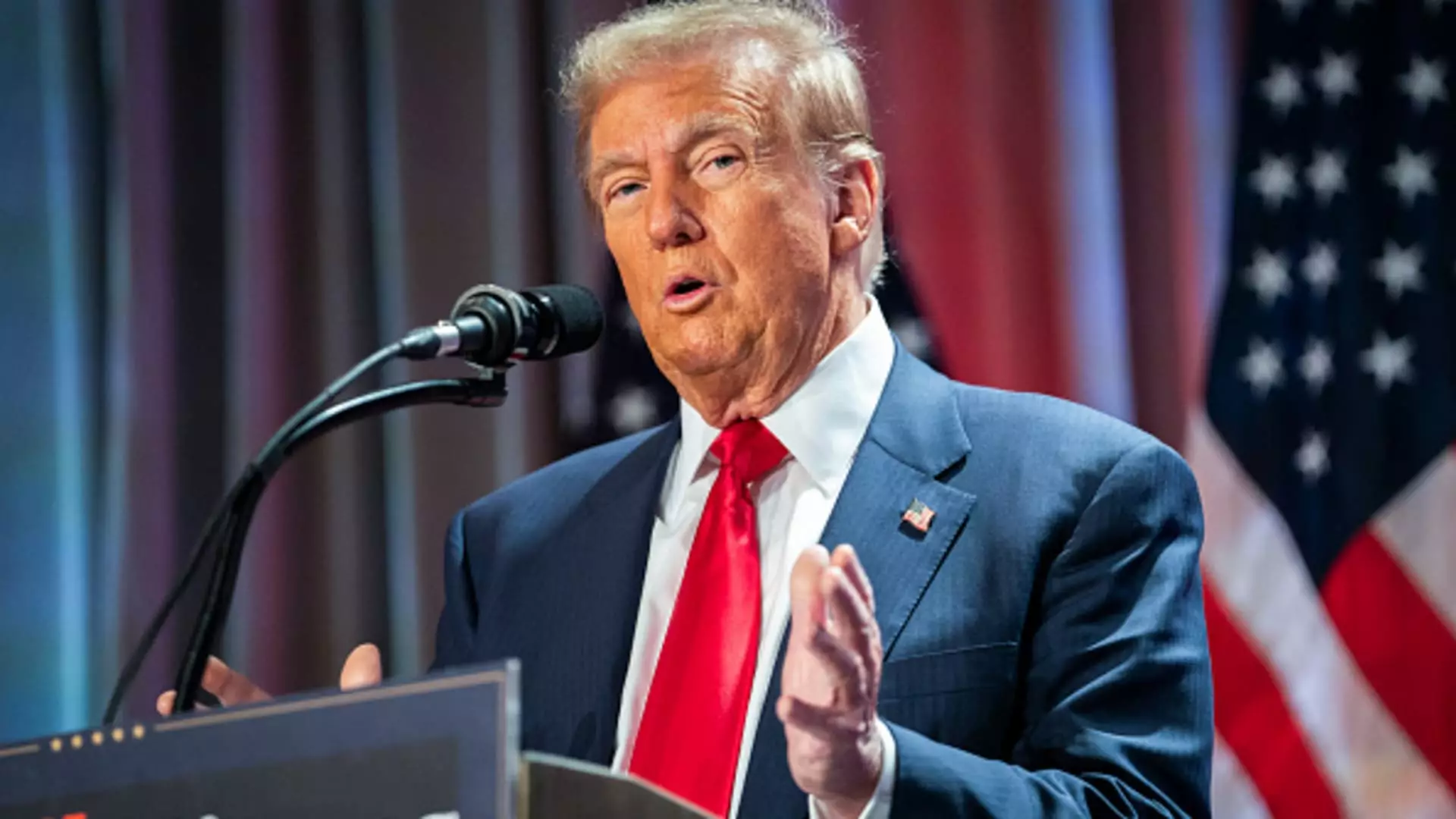In the wake of President-elect Donald Trump’s impending administration, financial analysts are gearing up for potential economic shifts prompted by his tariff initiatives. John Davi, the managing director at Astoria Portfolio Advisors, has been vocal about his concerns regarding the inflationary pressures that these policies might induce. He emphasizes the importance of strategic investment selections in this uncertain economic climate. As inflation typically poses a threat to economic stability and growth, the implications are significant for portfolio management.
Davi advocates for small-cap industrial stocks over their large-cap counterparts, suggesting that smaller companies may adapt more effectively to the challenges that lie ahead. He shared his insights during a CNBC interview, where he claimed that the political climate may favor smaller corporations that are more insulated from the global market fluctuations that come with tariff changes. In his view, small-cap firms may emerge as beneficiaries of a domestic-focused growth policy that a Trump administration might pursue, especially in terms of encouraging onshore production and employment.
The Wall Street Reaction
The optimism surrounding small-cap stocks appears to be echoed in Wall Street’s early responses. Following the election results, the Russell 2000 index, which tracks smaller companies, has reportedly seen a significant uptick, reflecting a bullish sentiment among investors. This trend showcases a broader market confidence rooted in the anticipation of economic policies that favor local industries, further reinforcing Davi’s investment strategy.
Davi has opted for an overweight position in U.S. investments despite potential tariff-induced challenges. He views this strategy as prudent over the next couple of years, particularly leading up to the midterm elections. By investing domestically, he believes that portfolios may be better positioned to leverage the outlined benefits any pro-growth agenda may present. With the current political framework providing a unique opportunity for domestic markets, Davi sees a favorable environment for American businesses.
While some sectors present enticing opportunities, Davi advises caution regarding fixed-income assets. The rising budget deficit poses a significant risk to bond investments. The recent spike in the benchmark 10-year Treasury yield further complicates the situation, indicating a shift in investor sentiment. His warning to be cautious with bonds underlines the concern that fixed-income returns could diminish in an inflationary environment.
Investment strategies amid unprecedented shifts in policy must be forward-thinking and adaptable. John Davi’s insights reflect a nuanced understanding of the evolving economic landscape, where careful selection of small-cap stocks and a focus on domestic growth could prove advantageous. As markets continue to respond to the political climate, investors are advised to remain vigilant in reassessing their portfolios in anticipation of evolving economic conditions and potential policy impacts. In this intricate format, careful investment planning becomes a vital tool against inflationary pressures and market volatility.

